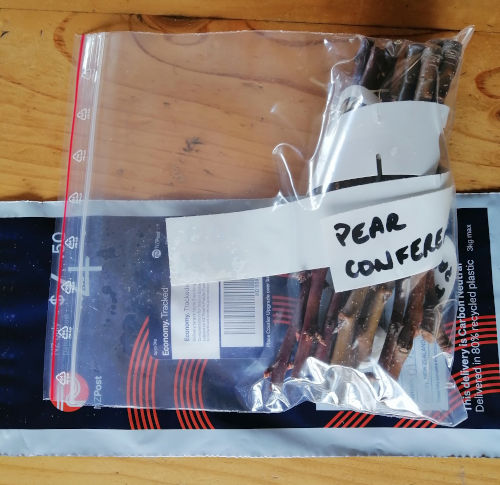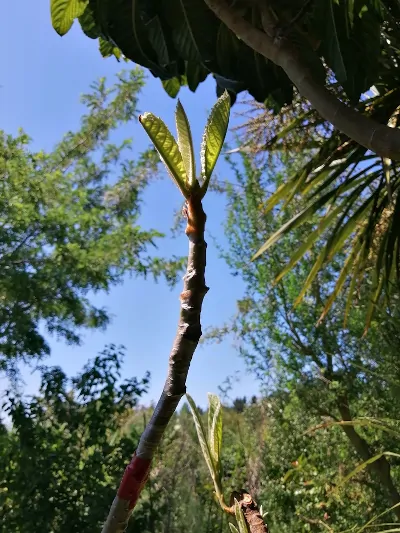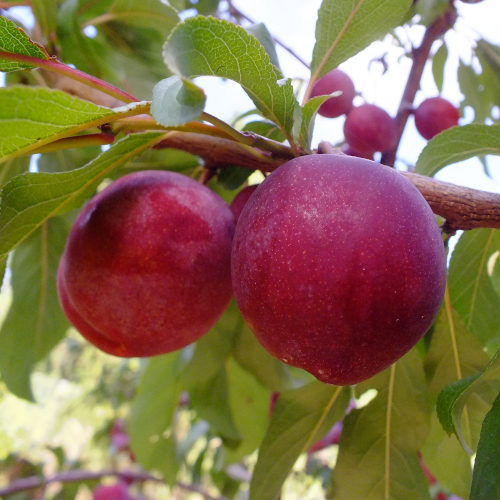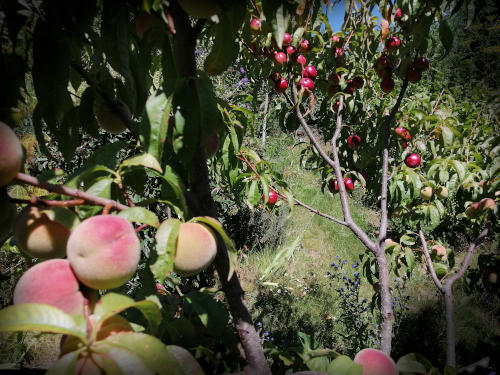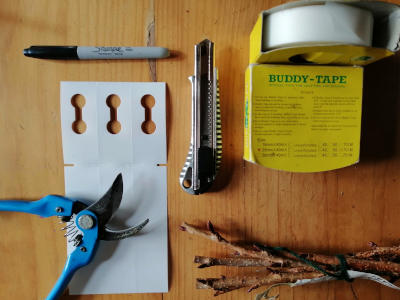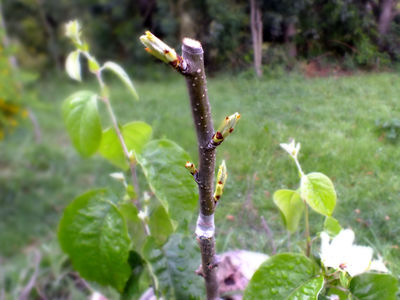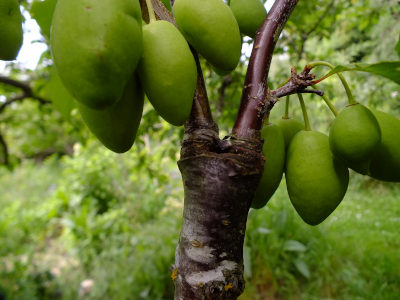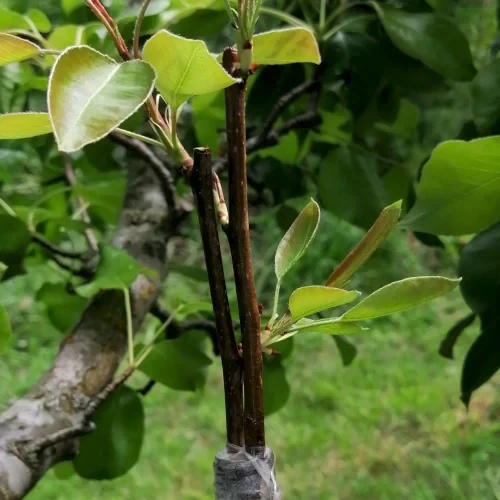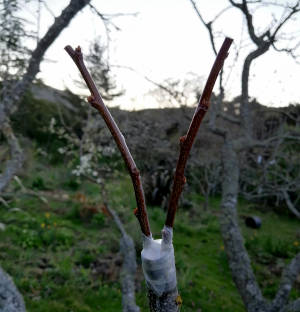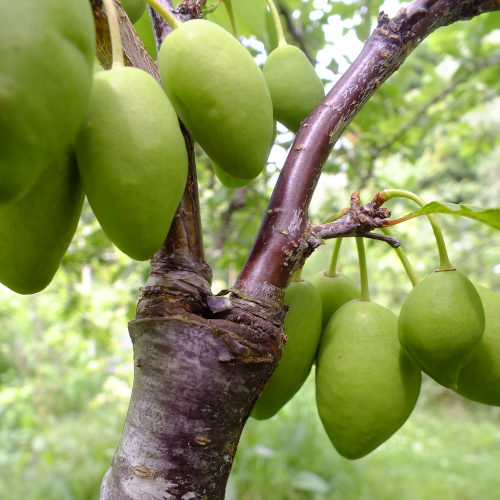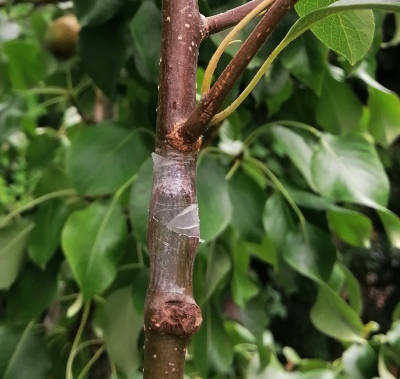Collecting, storing and posting scion wood
Collection
Scion wood is collected during the dormant season from shoots that grew the previous year. In North Canterbury that is June - July. Vigorous growth of at least a 30 centimetres make the best scions. Water sprouts from up in the tree usually make good straight scions. Do not collect scion wood while it is frozen, and avoid wood that has been damaged by cold.
Storage
After cutting, scions should be tied in bundles, labelled, and stored under moist conditions in a temperature range of 4 to 7c. Bundles wrapped with damp paper towelling, sealed in plastic bags, and placed in a refrigerator store well providing it does not contain apples, pears, or other ethylene gas-generating fruit, as this is reputed to ruin the scion wood. However, wood sealed in plastic bags may not be affected?
Grafting time
Choosing when to graft can be tricky. What you want to be doing is performing the graft when the host tree or rootstock is waking up in the spring and the sap is rising and buds starting to swell, prior to blossom or leaf burst. Generally the grafting proceeds in the same order the trees flower and fruit, but earlier. Starting in mid to late august with almond followed by cherry, plum, peach & nectarine, nashi, pear and finally apple in late September.
At grafting time, cut off and discard the tip and base of the scion. Buds near the tip are often flower buds, and those near the base are often weak buds. The remaining portion of the stem is used to make scions each containing three to five buds.
Scions of apple and pear (possibly others?) can be collected and grafted immediately in early spring. Mid August to mid October in North Canterbury
Postage
When we send scions they are bundled and labelled, sealed in a resealable bag with a wad of damp paper.
